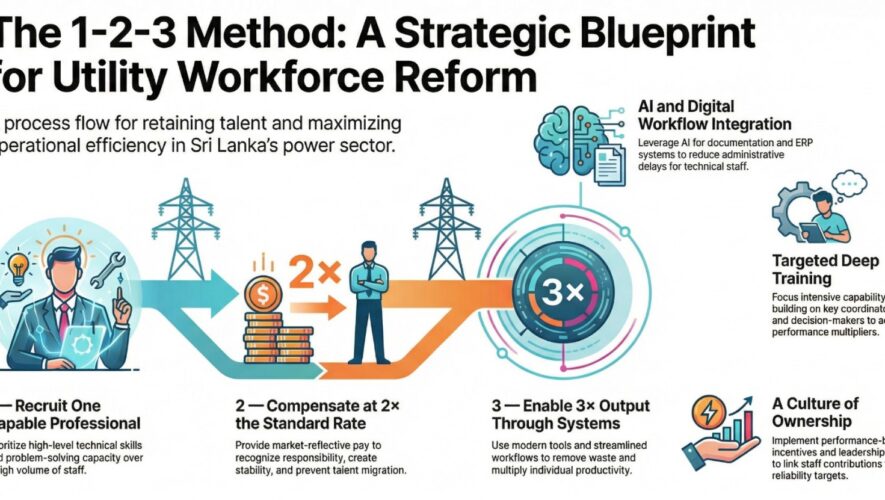Rehan Jayawickrama, the young and vibrant politician, hails from a family of renowned political backgrounds.
The grandnephew of former Minister Major Deshamanya Walter Geoffrey Montague Jayawickrama and also a grandnephew of former State Minister for Defence Ranjan Wijeratne , Rehan is known to be an outspoken politician, fearless activist, and to his close friends and family, a gentle and generous individual.
Rehan served as the former Mayor of the Weligama Urban Council and is currently in active politics within the Samagi Jana Balawegaya (SJB).
The Newsdesk sat with Rehan for a quick chat to know what’s on this young politician’s mind.
The interview is as follows:
1) What do you think about the change currently ongoing where there’s a lot of new faces in the political arena?
It’s refreshing and necessary. The emergence of new faces signals that the public is hungry for change. People are tired of recycled promises from recycled politicians. While experience matters, integrity, energy, and empathy are equally important. This shift reflects a growing desire for leaders who understand the present and are prepared to shape the future, not just protect their past.
2) Do you think with the fresh faces comes new perspectives OR inexperienced individuals who will struggle to keep Sri Lanka afloat?
Both possibilities exist, but let’s not forget that some of the most experienced leaders led us into the mess we’re trying to clean up now. I believe that with the right vision, humility, and a willingness to listen and learn, new leaders can offer the fresh perspectives we need. What’s dangerous isn’t inexperience. It’s arrogance, entitlement, and political insulation.
3)As a young and upcoming politician, what are the challenges you think need to be addressed in Sri Lanka?
The biggest challenges are institutional decay, public mistrust in governance, and a political culture that prioritizes loyalty over merit. Corruption isn’t just about stolen money. It’s about stolen opportunities. We need urgent reform in how local governance works, how politicians are held accountable, and how public service is measured, not by ribbon cuttings but by real outcomes.
4) What are your views on the education sector in Sri Lanka? Is the Government school sector developed, modern and practical for the youth of tomorrow?
The dedication of our teachers is commendable, but the system they work in is outdated. Our government schools still emphasize rote learning, fear-based discipline, and outdated curricula. In a digital and fast-changing world, that just isn’t good enough. We need schools that teach our children how to think, not just what to think.
5) What needs to change in secondary and higher education in Sri Lanka to ensure more job opportunities both locally and abroad?
We need to bridge the gap between what we teach and what the job market actually needs. That means introducing technical, vocational, and IT-based training earlier, reforming English language and soft skills education, and creating stronger industry-academia partnerships. Let’s stop producing graduates who can’t find work and start producing professionals who can create work, for themselves and others.
6) What are your views on the LGBTQ community in Sri Lanka?
Every Sri Lankan deserves dignity, equality, and protection, regardless of who they love or how they identify. We need to move past fear-based politics and recognize that LGBTQ rights are human rights. Criminalizing or marginalizing people based on their identity belongs to the past, not to a modern and compassionate Sri Lanka.
7) Is Sri Lanka really as free as we say we are when it comes to media, social media, political opinions and views?
Not really. While we have platforms to express ourselves, the moment you criticize the wrong person or expose the wrong truth, you’re targeted. True freedom means protection from retaliation, not just the illusion of choice. We need better laws, independent institutions, and political maturity to protect freedom of speech.
8) If you could bring about a change in 3 things in Sri Lanka, what would it be?
Accountability. Politicians and public officials must be held responsible for misuse of power.
Education reform. Start building a practical, modern education system that nurtures innovation and critical thinking.
De-politicization of institutions. Appointments must be based on merit, not loyalty. We need professionals, not political puppets.
9) What is your opinion on the future of Sri Lanka in perspective of economy, development, geopolitical relationships and politics?
We’re at a crossroad. The choices we make now, whether to embrace reform, transparency, and unity, will define our trajectory. Economically, we must rebuild trust with investors by proving we’re serious about the rule of law and long-term stability. Geopolitically, we need to be neutral, strategic, and sovereign, not anyone’s pawn.
Joining BRICS is absolutely important to us. It opens the door to new development financing, trade opportunities, and strategic alliances beyond the traditional Western bloc. It’s not about choosing sides, but about expanding our options and asserting our independence on the global stage.
Politically, we need to bury the idea that leadership is a birthright and embrace the idea that it must be earned through service, honesty, and results.




